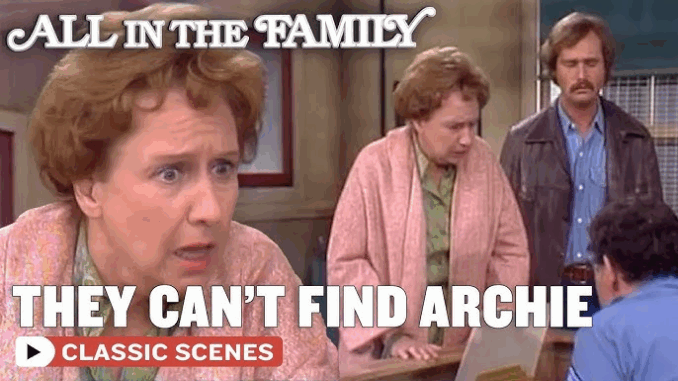
In the golden age of television, few shows held up a mirror to society quite like All in the Family. Running from 1971 to 1979, the Emmy-winning sitcom did more than entertain — it ignited conversations, sparked debates, and redefined what television could be.
At the center of this cultural storm was Archie Bunker, a character who became as infamous as he was iconic. Played by Carroll O’Connor, Archie was a working-class patriarch whose outdated views on race, gender, and politics were both cringe-worthy and revealing. He wasn’t a villain. He was, in many ways, a product of his time — and that’s exactly what made him so powerful.
A National Conversation in Every Episode
For the first time, TV audiences saw their own family arguments reflected on screen. All in the Family didn’t shy away from the uncomfortable — it embraced it. Each episode felt like a slice of real life, as the characters clashed over everything from the Vietnam War to civil rights to generational change.
While shows of the past offered escapism, All in the Family forced viewers to reckon with reality. It was bold, even by today’s standards. And it didn’t always offer easy answers — which made it feel honest.
The Power of Character Contrasts
The brilliance of the show lay in its characters. Archie’s conservative rants were constantly challenged by his progressive son-in-law Michael, creating a tension that drove the show’s emotional and comedic core.
Edith, Archie’s wife, brought warmth and moral clarity, while Gloria added passion and empathy. Together, they formed a cast that felt like a real American family — deeply divided, but undeniably connected.
Redefining the Sitcom Genre
Before All in the Family, sitcoms were mostly built around laughs and lighthearted plots. Lear’s vision changed that. He introduced topical comedy, where the jokes weren’t just funny — they had weight.
The show’s influence can be seen in everything from The West Wing to The Office, from Family Guy to This Is Us. Every time a comedy addresses real-world issues with depth, it owes a debt to All in the Family.
A Legacy That Endures
More than 50 years after its debut, All in the Family still feels urgent. Its themes — political polarization, generational clashes, economic struggle — are still part of the American story.
Norman Lear, now considered a television pioneer, once said, “We just tried to be truthful.” That truth resonated with millions then — and still does now.
